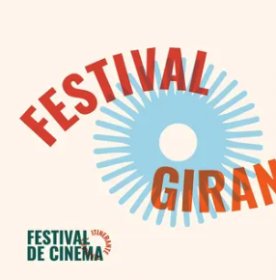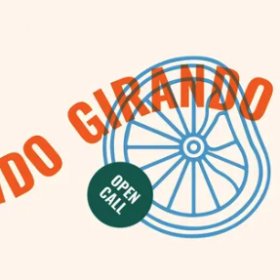No Fee
Submissions deadline
10 Jun 22
0€
04 May 2022
Call for entries
10 Jun 2022
Festival closed
10 Aug 2022
Notification date
09 Sep 2022
23 Oct 2022
Festival start: 09 September 2022 Festival end: 23 October 2022
Several cities around the world were redesigned at the beginning of the last century to host the automobile revolution. Many streets were reinvented to make room for motor vehicles, and the space for pedestrians in public space was rethought. As cars took over the city, the Lumière brothers experimented with the first film cameras and left us the first documentary on cycling races, depicting the Lyon – Geneva race of 1896.
The arrival of motor vehicles meant the reduction of distances, allowed the relocation of industries to the urban periphery and once again reorganized the urban map. Distances increased considerably and workers, attracted by better opportunities, populated popular neighborhoods outside the urban center. Public transport grew at this time in response to the need to move workers; however, the bicycle continued to be the queen of mobility, especially between wars. Losing a bicycle was a great drama, as we can see in Vittorio de Sica’s premiere, “Ladri di biciclette” (1948).
The periphery, the banlieue, the suburbs… are today often heirs of a manufacturing urban past, full of illusions and dreams of innovation. They are home to many migratory processes and the birthplace of new forms of urban culture. However, they are often poorly connected to the urban centre, making them separate islands from the city. Islands full of young creators who see audiovisuals as an excellent way to communicate, a medium for self-expression, and a great opportunity to overcome physical boundaries. The bicycle shortens distances and makes us physically experience the city with each pedal stroke. It is a tool to recover the city, think about the urban, and redesign the territory.
If the motor vehicle redesigned the 20th-century city, the bicycle redesigns the 21st-century city. Many cities have started to include or extend their network of bike paths, offer subsidies for the purchase of personal or cargo bikes, and more and more groups of amateur cyclists are emerging, thus creating more communities of interest. The bicycle plays an important role in active mobility, being an environmentally friendly means of transport and a way to maintain a healthy lifestyle. Still, as Barden would portray in 1955, relationships on the road aren’t always happy.
Cinema has portrayed these problems and many others related to mobility; stands out as an almost universal way of initiating dialogue about the urban, the territory, mobility and the way we live the city.
We invite the presentation of films that reflect on the following themes, or others in which the bicycle plays an important role in urban life in society:
– Shared bicycle practices
– Discover the city by bike
– The bicycle as a tool for working and experiencing the city
– Cycling communities
– Youth, territory and freedom on wheels
– Social justice, bicycles and the right to the city
– Environment and bicycles
– Daily bike commuting and community identities
– Minorities and bicycle
– Periphery and cycling
– Bike & sports
Rules and Terms
– Applications to submit films for this festival must be done through Festhome.
– Only films produced after 2017 will be accepted.
– The entrant confirms that they have the necessary legal authority to submit and use all music, images and content in the entry.
– Accepted films will be announced in due time and entrants must submit a copy of the selected films online.
– We accept professional and non-professional productions, including student works.
– The festival will take place in Portuguese; in this sense, we give priority to films in Portuguese and/or subtitled in Portuguese. A quota of up to 20% will be reserved for the acceptance of films that are in english and/or subtitled in english.
Review policy
– Films are viewed and evaluated by at least 2 members of our Festival Jury.
– Films will only be evaluated if we are provided with a complete version and if the film is applicable to our festival themes listed above.
– The programming committee is made up of urban planners, filmmakers, community activists, residents of the neighborhoods where the festival will take place and academics.
– Films are judged for their quality, unique perspective, and most importantly, their suitability for our program themes.
– Decisions on the evaluation of submitted films are final.
– Regardless of whether or not the film is accepted for the festival, it is not possible for us to send you specific feedback about your evaluation.
Legal consideration
It is the responsibility of the filmmaker/producer to clear all rights before your film screens at the festival.
Entrants will be asked to sign an agreement on screening rights and image use for promotion purposes.
Entrants shall indemnify and hold harmless Girando from and against any and all claims, liabilities, losses, damages, and expenses (including but not limited to attorney’s fees, and costs of the court) which may be incurred by reason of any claim involving copyright, trademark, credits, publicity, screening, and loss of or damage to the screening videos entered.
Any unexpected situation not contemplated on the screening agreement between Girando and entrants will be managed by an arbitrary court in Lisbon.
No Fee
Submissions deadline
10 Jun 22
No Fee
Submissions deadline
10 Jun 22
No Fee
Submissions deadline
10 Jun 22



